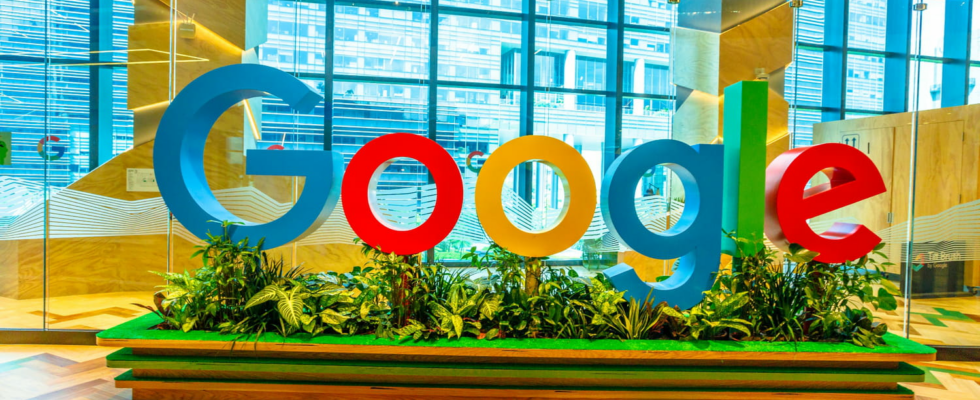Suspected for several weeks of manipulating its search results to the detriment of former US President Donald Trump, Google was forced to respond publicly to accusations from billionaire Elon Musk.
Since the assassination attempt on former US President Donald Trump on July 13, 2024, and the withdrawal of incumbent President Joe Biden from the next US presidential election in favor of his Vice President Kamala Harris, the US political scene has been in turmoil. As a result, US internet users’ searches related to politics have exploded, and many people have quickly noticed strange behavior from Google’s search engine.
Indeed, when searching with the words “president donald”, Google’s suggestion system only offered terms like “Donald Duck” or “Donald Reagan”, and not “Donald Trump” as one might have expected. Furthermore, even when manually typing “Donald Trump”, the results returned then contained many pages with the words “Kamala Harris” in their title. This was enough to trigger a wave of questions among Internet users, suspecting Google of manipulating its results in favor of the American Democratic Party.
And these suspicions reached their peak when billionaire Elon Musk, boss of Tesla, SpaceX and especially the social network Twitter (aka X) published a message on the latter, almost openly accusing Google of engaging in “electoral interference”. When we know the influence of the billionaire on his own social network, we can easily measure the scale of such a statement: his message was seen more than 120 million times, generated 82,000 responses, 188,000 shares and a million likes.
Google forced to publicly deny Elon Musk’s accusations
Faced with such an audience, it is impossible for Google to remain silent. Although accustomed to finding itself under fire from criticism and impartiality trials due to its hegemonic position in the Internet search sector, the company had to engage in a rather unusual communication exercise coming from it. In a thread of messages on Twitter (aka X), posted from the official Google Communications account dedicated to the press, it provides technical explanations on the grievances that are brought against it, without however mentioning Elon Musk by name.
Over the past few days, some people on X have posted claims that Search is censoring or banning particular terms. Thats not happening, and we want to set the record straight.
The posts relate to our Autocomplete feature, which predicts queries to save you time. Autocomplete
— Google Communications (@Google_Comms) July 30, 2024
In response to the accusations of “censorship” and “banning” leveled at it, Google presents several arguments. First, it points out that the query autocomplete function is only an input aid, which in no way prevents the user from manually entering their own search. Then, it explains that the absence of search suggestions for the attempted assassination of Donald Trump comes from a system for protecting against content promoting political violence. It then indicates that this system has been corrected in order to now offer search suggestions relating to the attempted assassination of the former American president, with a screenshot to support this.
She then goes on to discuss the autocomplete issue, suggesting terms like “Donald Duck” (a Disney character) instead of “Donald Trump,” and explains that it’s a glitch that affects searches for different political figures, like Barack Obama. According to Google, the problem doesn’t specifically target former President Donald Trump, but comes from the search suggestion algorithm, which has since been fixed to provide more relevant suggestions.
Finally, the company responds to the accusation that searches specifically containing the words “Donald Trump” would mainly return pages dedicated to his Democratic rival in the 2024 US presidential election. With screenshots to support this once again, Google points out that search results provide content related to the terms of the query and that, in this case, many articles talking about Donald Trump contain the words “Kamala Harris” in their title, because the two subjects are closely related. Moreover, the opposite case also occurs when searching directly for the terms “Kamala Harris”, which returns content titled “Donald Trump”.
In conclusion, Google explains that its services are based on algorithmic prediction systems, which can sometimes offer strange, unexpected or inaccurate results, to which the company makes continuous corrections and optimizations. These would therefore be normal and common malfunctions in the field of Internet search, and there would be no deliberate desire on the part of Google to manipulate its search results according to the company’s supposed political orientations.
While these explanations are entirely plausible and technically plausible, it is not certain that they will be enough to put out the fire. As evidenced by the many responses under Google’s Twitter feed, many Internet users say they do not believe these explanations and have no confidence in the company’s statements.
This is one of the problems with social media statements, whether well-founded or not, by highly influential figures like Elon Musk: once a rumor or innuendo has been launched, it is very difficult to reestablish the facts based on sourced and verified information. And this phenomenon seems all the more powerful in societies that are experiencing extreme political tension and polarization, such as the United States at the moment.
